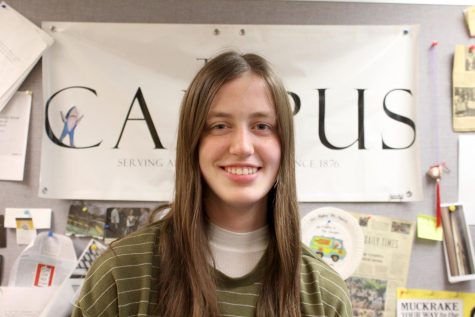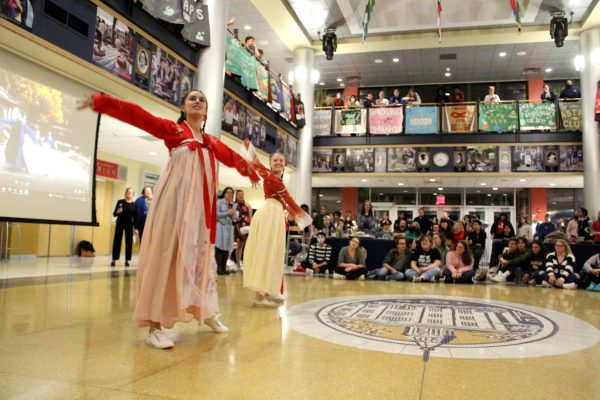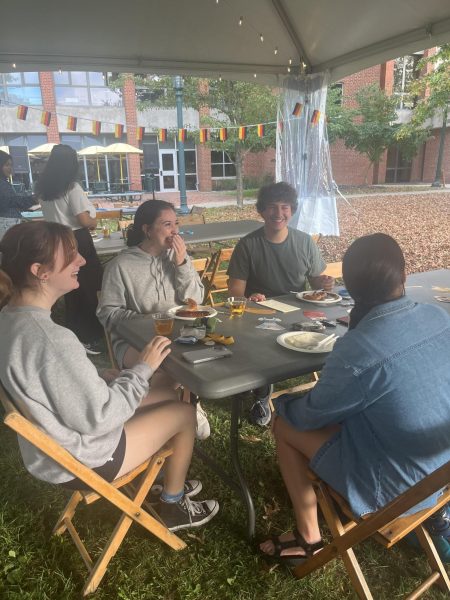Kremlinology in the 21st century
Putin has cancer. There is a coup planned against him. To make things worse, he is so unpopular that he cannot risk running in the next election. At least according to rumors spreading on tabloids and sites such as Newsweek.
Rumors like these are often untrue, based on overanalysis of pictures on Twitter, explained Professor of History and Global Health Studies Kenneth Pinnow. The circulation of these rumors can be explained by “Kremlinology,” a term that describes how during the Cold War, the West relied on rumors to decipher what was going on within the Kremlin.
The most recent rumor spreading about the Russian president is that he is retiring. This future does not look likely, according to Pinnow.
“When people speculate about him leaving and so forth, we have to be careful what we wish for because for as bad as he is — and as problematic — there’s always a chance that the next person could be even worse — if that’s possible — in terms of even more rabid nationalists,” Pinnow said.
Putin is essential to politics in Russia, Pinnow explained. Serving as president since 1999, with a brief break from 2008-12, Putin acts as a “referee” in Russian politics, keeping different sources of power in check. The 70-year-old is so central to the system that the Russian constitution was amended back in 2018 to allow him to run for office once more in 2024.
“They have a constitution and they have institutional structures, but it’s still very much a system driven by personal power,” Pinnow said. “Putin is at the center of the political system for the sake of stability and the people.”
Many government officials are reliant on Putin for their power, Pinnow explained. By stepping down, Putin could potentially create a power vacuum, thus further destabilizing the fragile political system. Furthermore, Pinnow does not foresee the president stepping down anytime in the near future. Despite the war in Ukraine tainting his image as a “master strategist,” Pinnow said that Putin is still popular in Russia and faces very little opposition.
For the U.S., Putin stepping down provides the opportunity to amend relations with Russia, according to Associate Professor of Political Science Shanna Kirschner, although it also has the possibility of worsening relations with an even more extreme leader.
“If I was Putin, I would be starting to think about, ‘How do I hedge against getting overthrown or shoved out of power in a way that I don’t have a lot of control over,’” Kirschner said. “To my mind, the benefit of him sort of ‘retiring’ — giant air quotes — is that he really does get to control or manage that transition. With the way the war has been going, if he’s smart, he understands that the risk of him being overthrown has risen, as opposed to where he might have been a year ago.”
Despite the potential negative consequences of Putin retiring, Pinnow agreed that the president should step down.
“I would like him to be replaced by a more open, democratic system that brings an end to the war and then also maybe starts to allow Russia to rethink itself and reintegrate with — or maybe think about reintegrating with — the world more broadly,” Pinnow said.
To Mykyta Kovbasa, ’24, a student from Ukraine, the issue runs much deeper than the president.
“I heard that a lot of people think that Putin is the main problem — for me … (the) problem is the intelligence of 99% of Russians,” Kovbasa said. “You cannot just become a president and change the whole country.”
Even if the leadership in Russia changed, the war will not end, Kovbasa explained. He believed that the change needs to occur within the larger population of Russia, as he sees the government-controlled news sources as feeding propaganda to Russian citizens for decades. This broadcasting has instilled a great sense of nationalism in Russians that has blinded them to the facts, Kovbasa said.
“Nine out of ten will say that Ukraine is a part of Russia or it used to be a part of Russia, which is not true,” Kovbasa said. “Everyone except the Russians understand how bad they are and what they are doing, not only for Ukraine, but for all of the world. Only Russians still think that ‘We’re good.’”
As for Putin, Kovbasa expressed a deep dislike of the president. Even though the president was not the root of the issue, he certainly played a part.
“He should die, not step down,” Kovbasa said.
Kovbasa was equally pessimistic about future Russian presidents. He explained that the only real way for a new president to change Russia for the better was if Russian citizens themselves changed. Until then, any reform attempts will likely end in failure.
“If the president will stop propaganda I think he will die in a week because it is a system,” Kovbasa said. “It is a system and the president is just the top of the system, and if the top of the system tries to ruin that whole system, the system will just get rid of this part.”
Sahsa Shafran, ’25, believes that Putin is already dead. At least, she hopes so.
“He destroyed my life,” Shafran said.
As a Ukrainian, she viewed Putin as more of a dictator than a leader, likening him to Adolf Hitler. To her, leaders organize governments and make positive changes within their countries.
From Shafran’s perspective, there is nothing Russia can do to reform from their current situation. She recalled memes that have been going around on Ukrainian social media sites about Russia being replaced by more ocean.
“I would like to see no Russia,” Shafran said. “I think some magic should happen and Russia will literally disappear this year. (Russia) just brings a lot of troubles to my life and to people’s lives.”
Most importantly, Shafran emphasized that these rumors should not take attention and support away from Ukraine.
“Stand with Ukraine,” Shafran said. “Support Ukraine.”
Kovbasa echoed her sentiments.
“We can still beat the Russians’ a—-,” Kovbasa said. “Even if we are 10 times smaller than they are.”

Caroline Maye is a first year from Chicago, Illinois. She plans to major in Political Science or History with a minor in Journalism in the Public Interest....








